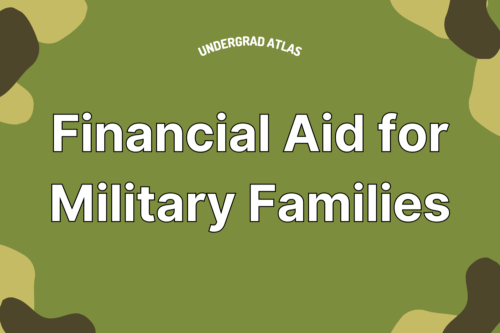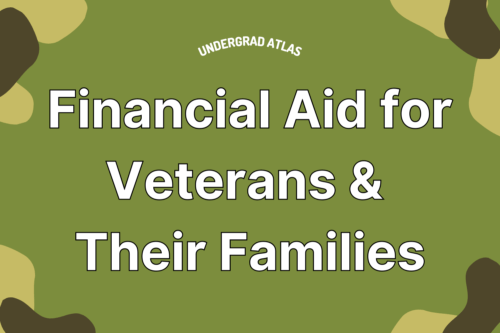Heading to college right after high school is the typical path for most students. However, for many veterans, the journey to higher education can be a bit more complex. Veterans, who often have unique needs and responsibilities, require specific guidance when navigating the college application process.
Whether you need assistance understanding application requirements, maximizing military credit, or utilizing the GI Bill and other military benefits, we have got you covered. Read on to discover how you can successfully apply to college as a veteran and achieve your academic goals.
Applying to College after the Military
When it comes to applying to college as a veteran, understanding the application process is crucial. As a veteran, you may have unique circumstances and qualifications that can set you apart from other applicants. It’s important to research the specific requirements and deadlines for the colleges that interest you.
As college applicants, here are some key steps to consider:
- Contact Colleges and Universities: Reach out to the colleges or universities you want to attend and inquire about their veteran admission policies and whether veterans are eligible for specific benefits or programs. Establishing a connection with the institution’s certifying official or staff members can help streamline the application process.
- Gather Required Documents: Prepare your military transcript, letters of recommendation, and any other documents required for the application. If you have taken courses at a university or community college, make sure you obtain an official transcript of the college classes you have completed. Be sure to include relevant information about your military education, as it can be an asset during the admission process.
- Explore Financial Aid Options: Research and understand the financial assistance options available to veterans. The GI Bill and other education benefits can provide financial assistance to pay for college. At many colleges, veterans do not need to pay the application fee. To apply for this benefit, you’ll need to fill out a form for a fee waiver. Ask your admission counselor if the college you’re interested in offers fee waivers. Additionally, fill out the Free Application for Federal Student Aid (FAFSA) to determine your eligibility for other financial assistance programs.
- Tailor Your Application: Customize your application to highlight your military experience, leadership skills, and academic achievements. Admissions officers value the unique perspectives and skills that veterans bring to the college community.
- Visit Campus and Attend Information Sessions: If possible, visit the campuses you are interested in and attend information sessions for veteran students. This will give you a better understanding of the college’s culture and available support services.
Understanding Education Benefits & VA
As a veteran, you have access to various education benefits. For instance, the GI Bill provides financial assistance to veterans going to college and their dependents to pursue a college degree. It covers tuition and fees, housing allowance, and a stipend for books and supplies.
In addition, there are other education benefits available to military veterans, such as scholarships, grants, and programs specific to certain branches of the military. It’s important to explore all your options and determine which benefits best suit your educational needs.
To make the most of your education benefits, follow these steps:
- Research Eligibility Requirements: Understand the eligibility criteria for each education benefit program. Different programs may have specific requirements based on your length of service, discharge status, or other factors.
- Consult with Veterans Affairs (VA): Contact your local VA office or visit their website to learn more about the education benefits you may be eligible for. The VA can provide guidance and answer any specific questions you have about utilizing your VA education benefits benefits.
- Work with a Certifying Official: Once you have chosen a college or university, work closely with the institution’s certifying official to ensure a smooth process for using your education benefits. This person will help verify your eligibility and ensure that your benefits are properly applied to your tuition and fees.
Maximizing College Credits
One significant advantage of being a veteran pursuing higher education is the opportunity to receive college credit for your military training and previous college courses. This can help you save time and money by reducing the number of courses you need to complete for your degree.
Many colleges and universities offer credit for military experience through programs such as the College-Level Examination Program (CLEP) and the American Council on Education (ACE) military review. Additionally, the Joint Services Transcript (JST) is a valuable resource that consolidates your military training and experience into one document, making it easier for colleges to evaluate your prior learning.
When seeking college credit for your military experience, consider the following:
- Research Credit Transfer Policies: Each educational institution has its own policies regarding the acceptance of military credit. Familiarize yourself with their transfer credit policies and requirements to ensure a smooth credit transfer process.
- Seek Guidance from Advisors: Meet with academic advisors or veterans’ offices at your chosen institution to discuss your military experience and how it aligns with their credit transfer policies. They can provide valuable guidance on which credits may be eligible for transfer and with enough credit, you can skip certain general education requirements and be able to graduate early as well.
- Take Advantage of Prior Learning Assessments: Most colleges offer prior learning assessments that evaluate your military experience for potential credit. These assessments can be based on your military training, professional certifications, or other relevant experiences.
Navigating the Admission Process for Veterans
The college application process can be overwhelming, but as a Vet, you have unique experiences and qualifications that can set you apart. Here are some tips to help you navigate the process successfully:
- Highlight Your Military Service: Use your application essays, interviews, and personal statements to highlight the skills and values you developed during your military service. This can demonstrate your leadership, teamwork, and resilience to college admissions officers.
- Utilize Veteran Resources: Take advantage of resources designed specifically to help ease the application process for veterans. Organizations like Student Veterans of America provide support, networking opportunities, and guidance throughout the college application process.
- Seek Letters of Recommendation: Request letters of recommendation from your supervisors or commanding officers who can speak to your character, work ethic, and achievements during your military service. These letters can provide valuable insights to admissions officers.
- Customize Your Application: Tailor your application to each college you are applying to. Research the specific programs, clubs, or initiatives that interest you, and explain why you believe they are a good fit for your educational and career goals.
- Stay Organized: Keep track of deadlines, required documents, and communications with colleges. Create a checklist or use a digital tool to ensure you submit all the necessary materials on time.
Effective Tips for Veterans
#1 Apply for GI Bill Benefits Early
One of the first steps in applying for college as a vet is to understand and apply for your GI benefits.
The Department of Veterans Affairs (VA) offers educational benefits to help cover the cost of college, and GI Bill benefits can help veterans and servicemembers fund their college education.. It’s crucial to familiarize yourself with the various GI benefit packages and research your options.
The VA website provides detailed information on the benefits available and even offers a Comparison tool to find out what your GI Bill benefits will cover and assess the resources available at specific colleges (Please note that you can’t use your GI Bill at every school).
#2 Consider Your Educational Priorities
Before choosing a college, it’s important to consider your educational priorities. Each veteran student has different goals and needs, so it’s essential to make choices that align with those priorities. Think about what you value most in your education. If maximizing your GI benefit funds is a priority, look for colleges that offer the best value for your benefits.
Compare quantifiable measures such as graduation rates, employment placement, costs, and affordability, as well as subjective measures like faculty accessibility and high-impact experiences.
Additionally, explore scholarship opportunities specifically aimed at helping veterans and consider applying for federal financial assistance.
#3 Find VA-Approved Colleges and Transfer Credits
When choosing a college, ensure that it is VA-approved and accepts credits. The VA website provides information on colleges that are regionally accredited and approved by the VA. If you have previously completed college courses during your military service or before, check whether those credits can transfer to your new school. It’s also important to inquire about how your military training can count toward your degree requirements.
Provide your prospective university with an official copy of your military record to ensure a smooth transfer of credits. The American Council on Education’s Military Guide is a valuable resource for determining which military courses will transfer.
#4 Seek Support from Certified Veteran Affairs Staff
Once you have narrowed down your college choices, seek assistance from the college’s VA office. The VA staff will provide valuable insights and resources from a veteran’s perspective. They can help answer questions about benefits and connect you with other resources that satisfy the unique needs of veterans.
Most schools have a VA certifying official or veteran counselor who can guide you through the college app process and provide support throughout your academic journey.
#5 Be Prepared for Challenges
Transitioning from military service to college life can present unique challenges. It’s important to be aware of these challenges and be prepared to overcome them. One common hurdle is learning how to ask for help when needed. Going to college may be just as challenging as the military, albeit in a different way.
However, colleges have ample resources available to help you succeed. Seek them out and utilize them to ensure your academic success. Remember that veterans typically have a higher success rate in college due to their tested resilience, self-discipline, and clear understanding of their overall goals.
You may also like: Best Financial Aid Options for Veterans and Their Families

Conclusion
Navigating the college application process as a veteran requires careful consideration and thorough research. By understanding and utilizing your GI benefits, considering your educational priorities, finding VA-approved colleges, seeking support from veteran affairs staff, and being prepared for challenges, you can successfully navigate the college app process.
Remember, a college education is within reach, and as a veteran, you possess unique qualities that can contribute to your success. Embrace the opportunity and make the most of your college experience.





